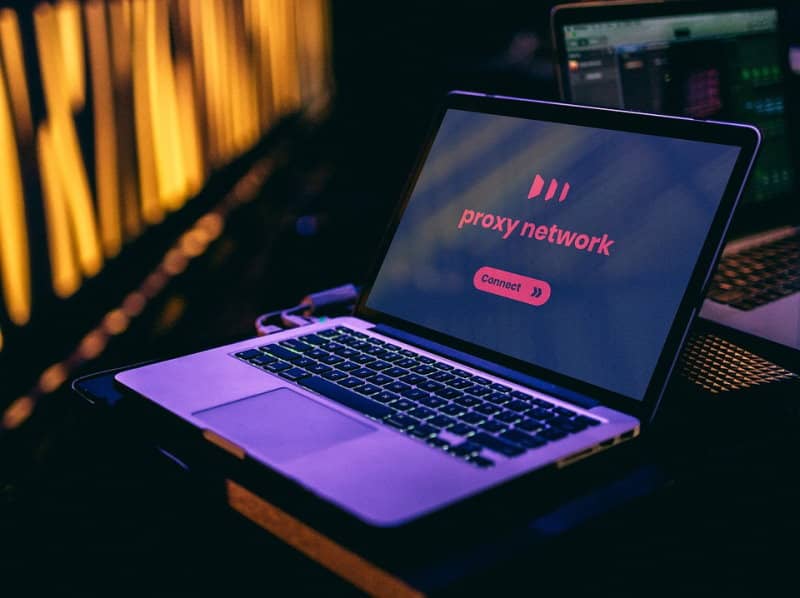Data is the currency of the web, and the way to mine it is through web scraping. When retrieving a large amount of data with web scraping, it is essential to have a web proxy to disguise a user’s IP address to prevent it from being blocked. Getting high-quality residential proxies for this task is necessary because the wrong proxy can leave an IP address vulnerable, stop functioning mid-task, or get the user banned. The following are things to consider when choosing web scraping proxies.
What Is Web Scraping?
Web scraping is a way of retrieving content from websites by lifting the HTML code and storing it on databases. A web scraper can be made with some coding knowledge, but some scrapers can be purchased, and some services available for free. Web scrapers vary in quality and type. Some are created for scraping large amounts of data, while others scrape content at a smaller scale.
There are several types of scrapers. Some are browser extensions that are ideal for those who don’t want to install software and want to scrape a small amount of content. Browser extension web scrapers can only scrape one page at a time, so for larger jobs, software and cloud-based scrapers are preferable.
Many scrapers are software that can be installed on a computer or device. These scrapers are safe and efficient if they are downloaded or purchased from a reputable site. For larger jobs, cloud-based scrapers are the right choice. Another advantage of the cloud is that there is no maximum amount of data that can be extracted. This makes extracting data smoother without breaks.
What Are Web Proxies and Why They Are Important?
Web proxies are used during web scraping to disguise the user’s IP address. It allows the user to connect to the target site indirectly through the proxy. This provides security and allows anonymous browsing. It also prevents the user’s IP address from getting blocked by the website during web scraping.
Choosing the right kind of proxy is essential. Its task is to disguise the user’s IP address, but some types of proxies may be easily recognizable as proxies and can end up getting blocked. Low-quality proxies may drop service in the middle of the job and expose the user’s IP address. Researching types of proxies and choosing one that is appropriate for the job is an essential first step for successful web scraping. The following are common proxy pitfalls.
1. Not Using the IP Rotation Mechanism
Web scraping involves multiple commands. When websites receive repeated requests from a specific IP address, the websites will block the IP address. These requests could amount to 100 per hour for large scraping projects, which could raise a red flag.
It isn’t enough to disguise a user IP but to use rotating proxies. Rotating proxies divides requests through a series of different IP addresses. Therefore, requests are distributed so that no single IP address will exceed the accepted number, and the scraping activity is less likely to be blocked.
2. Use Data Center Proxies
There are various kinds of proxies. Residential proxies are issued by an internet service provider and is associated with a specific IP address. A residential proxy can be static or connected to just one place or rotating and alternate between many addresses. Residential proxies are ideal for web scraping because their IP addresses are less recognizable as proxies.
Datacenter proxies are not issued by an internet service provider but come from a secondary corporation. Since they are not associated with an internet service provider, they can be easily detected as proxies and not IP addresses of a real-life user. Many websites are alert to data center proxies and may block them automatically. They consider excessive activity on their website suspicious and will block these proxies as a precaution.
3. Using an Old User-Agent
Websites are alert to any activity they may consider suspicious. One thing they are on the lookout for are certain user agent strings in HTTP requests. These user agent strings identify a device, browser, or tool, including web proxies.
Proxies behave in certain ways on the internet that make them identifiable as proxies. One way to ensure a proxy blend in is to use the latest version. Many of these proxies auto-update, so the process is not difficult. Using an older version of a proxy can cause sites to block it.
Choosing the Right Proxy
A web proxy allows a web scraper to perform its tasks without exposing the user’s IP address. However, to ensure the scraper functions properly and without interference, a high-quality residential proxy is essential. Providers such as BestProxy offer large, rotating pools of residential IP addresses designed specifically for data-heavy scraping workloads. This helps to reduce blocks and mid-task failures, as well as noisy IP ranges that trigger anti-bot systems.








